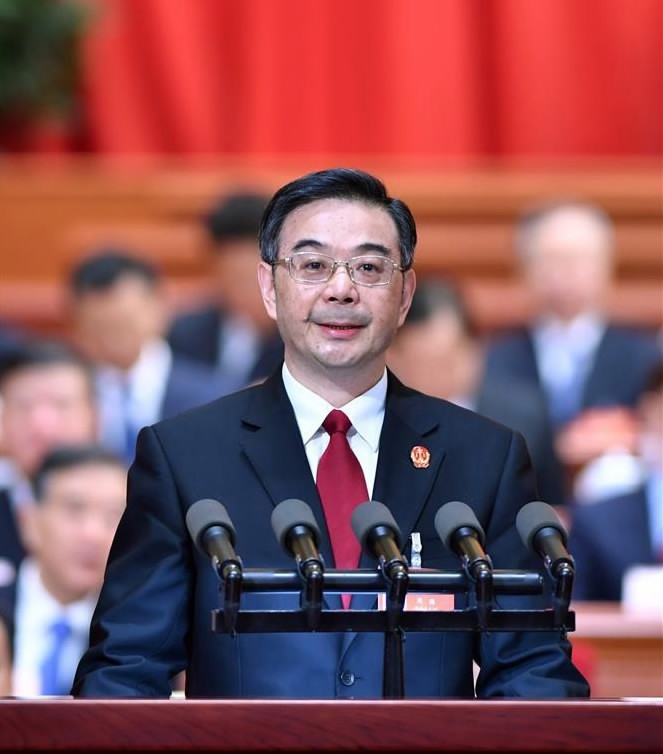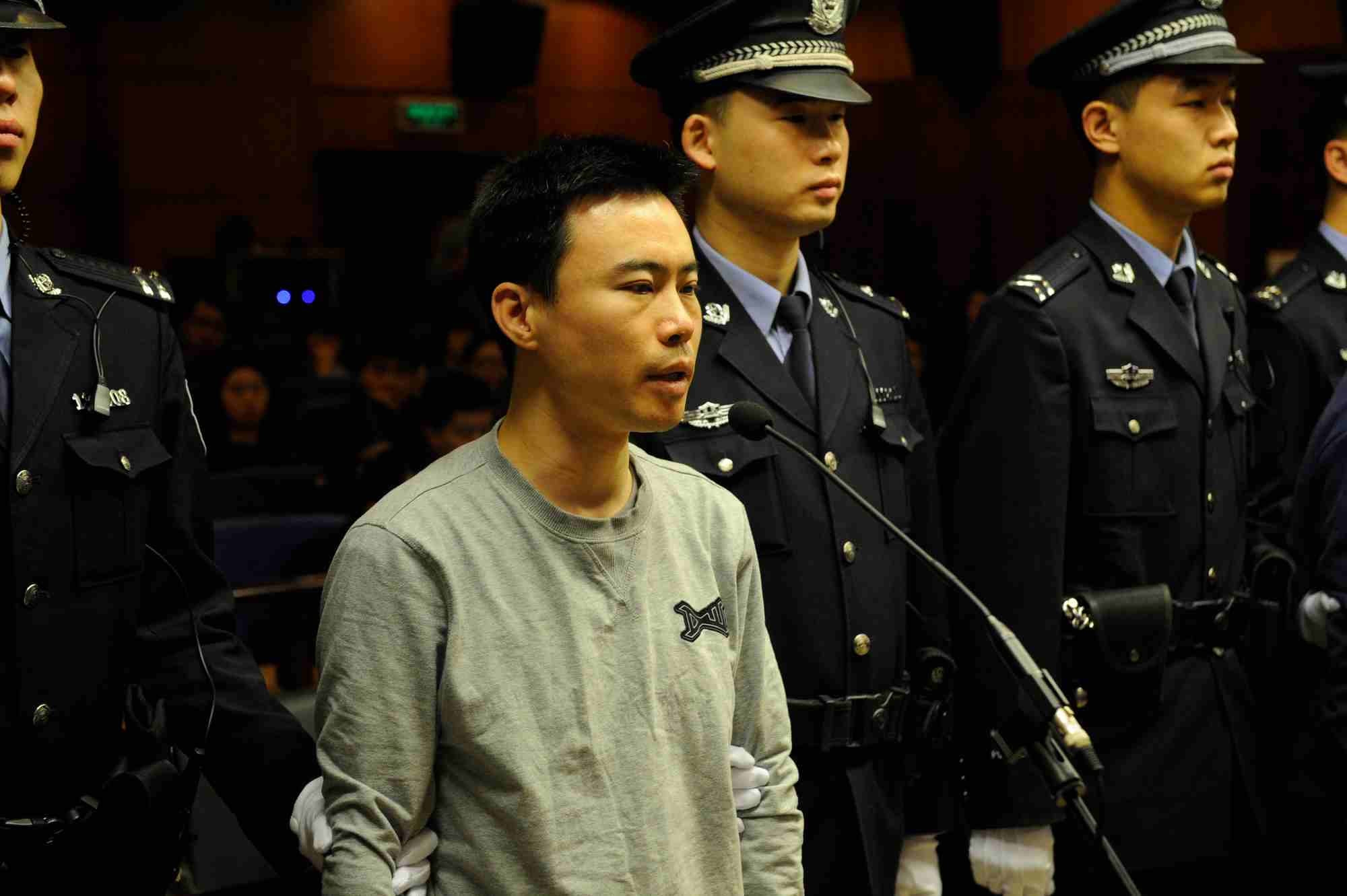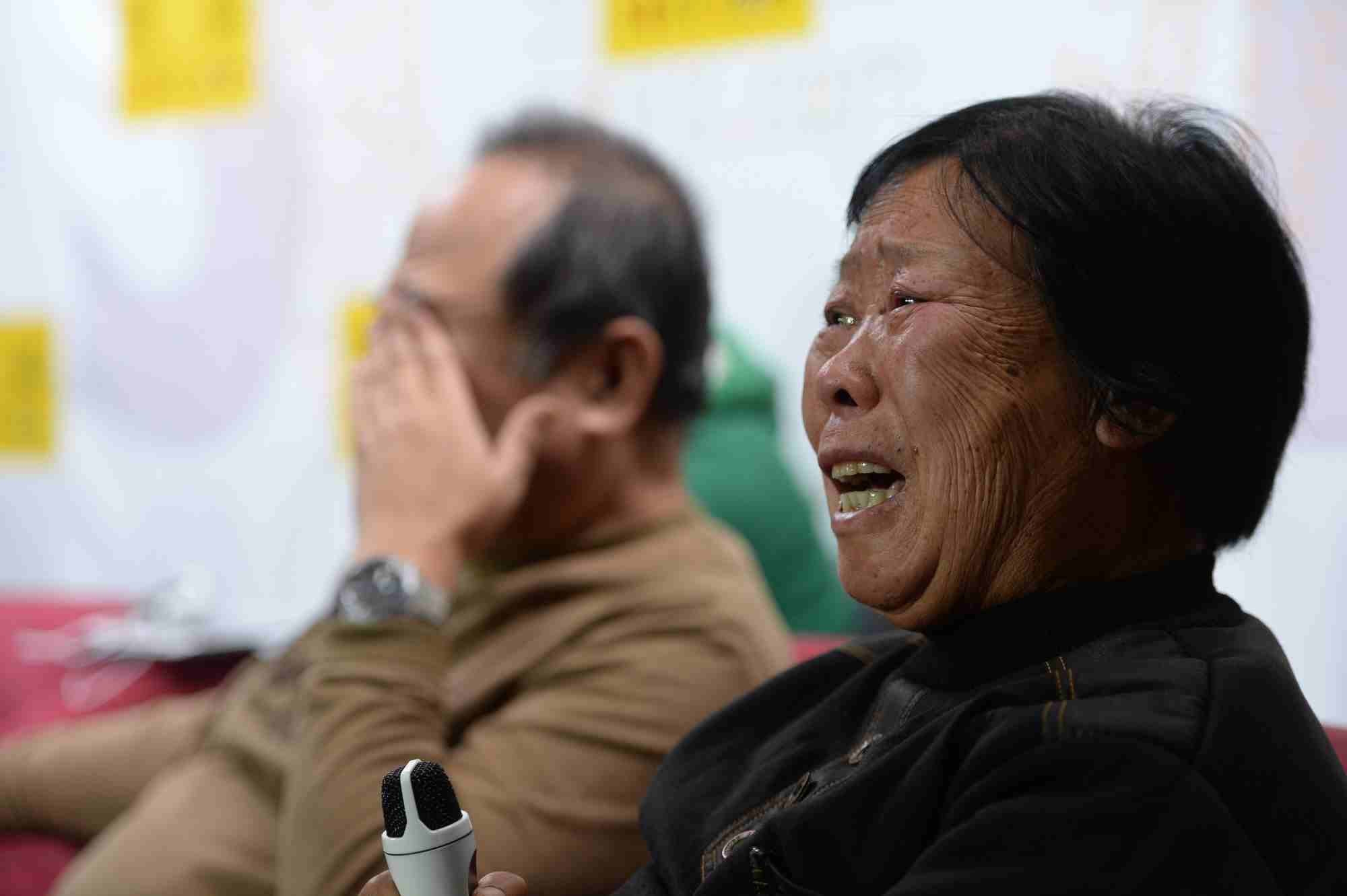Chinese courts concluded nearly 1.12 million criminal cases last year, but the number of people convicted for criminal offences also dropped by 1.0 percent to 1.22 million, according to a report delivered Sunday at a plenary meeting of the Fifth Session of the 12th National People’s Congress (NPC), the country’s top legislature.
Zhou Qiang, Chief Justice of the Supreme People’s Court (SPC) said 226,000 of the cases involved murder, robbery, kidnapping and burglary, while 118,000 were related to drugs.
China’s highest court also highlighted the country’s crackdown on corruption, national security risks and telecommunication fraud in 2016, while vowing to prevent wrongful judgements.

Chief Justice Zhou Qiang delivers a work report of the Supreme People's Court at the third plenary meeting of the fifth session of the 12th National People's Congress. /Xinhua Photo
National security, corruption and online crime
China seriously punished crimes that threatened national security last year, including terrorism and separatist activities, Zhou Qiang said, pointing to the case of Zhou Shifeng, a former lawyer who was sentenced to seven years in prison for subverting state power in August 2016.
Using his law firm as a front, Zhou Shifeng attacked China’s judicial system and promoted anti-government sentiment by interfering in and exaggerating sensitive cases, according to Xinhua news agency.
On corruption, China’s court system concluded 45,000 graft cases in 2016, implicating 63,000 people, including 35 former officials at the provincial and ministerial level or higher, said Zhou Qiang.

Wang Xin, CEO of Qvod Player, stands at court in January, 2016. /CFP Photo
Zhou also stressed on fighting telecommunication crimes, which have become a big threat given the pervasiveness of the internet.
He cited the Qvod case, where four executives of online video service Qvod were sentenced to up to three and a half years in prison for spreading pornography and benefiting from it.
Chinese courts concluded a total of 1,726 cases last year in efforts to clean up the environment online.
Preventing and correcting wrong judgements

Nie Shubin's mother recalling the farewell moment with her son. /CFP Photo
One painful lesson for the judicial system last year however was the case of Nie Shubin, a 21-year-old man wrongly convicted and executed in 1995 for raping and murdering a woman in Hebei Province.
The case was overturned in 2016 after a two-year review and the SPC announced Nie’s innocence on December 2.
The case disgraced the justice system, Zhou Qiang said, urging legal staff to deepen their sense of responsibility and improve their institutions to prevent such a mistake occurring again.
Ensuring a green environment
Chinese courts also played a role in promoting environmentally friendly development.
Last year, the courts concluded 133,000 cases involving the environment and natural resources, Zhou Qiang said.
In one instance, a company in eastern China’s Shandong Province, Zhenhua Co. Ltd., was fined nearly 22 million yuan (3 million US dollars) for air polluting emissions, he noted. The company’s executives were also ordered to apologize to the public.

Contaminants emitted into the air from a factory chimney. /CFP Photo
Proper dealing with new types of cases
Zhou Qiang stressed the need to develop proper responses to novel legal cases, such as those involving online financing and e-commerce.
One tricky case was a custody battle over twins who had been born through surrogacy: the children were conceived using sperm from their father and eggs from a surrogate mother who also carried the twins. After the father died, his parents claimed guardianship of the children, arguing that the mother had no blood connection with them. But the court eventually granted custody to the mother, in order to protect the twins.
Zhou commended the court, saying it had dealt properly with the case by putting the children’s rights first.
2016 saw comprehensive and deepening reforms in China’s judicial system, the chief justice also said.
The introduction of information platforms and “smart courts” linked to a network to facilitate data and video sharing, had injected new impulse into the system, he said, vowing further efforts in the coming year to provide legal safeguard for the country’s development.

CFP Photo









